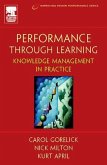During the last decades the world economy has experienced significant transformations. The pace of change is still showing no sign of slowing down. Financial globalization and rapid merge of information and communication technologies have integrated the world economy. The world economy has been turned from an industrial into a knowledge economy . Knowledge has become a strategic asset for firms and the ability to manage knowledge seems to be the crucial management skill now in the knowledge age . It is assumed as basis of the knowledge economy in sense of sharing knowledge and creating new knowledge for commercial advantage. Findings of the research about the factors of knowledge sharing process indicate that the success of intra-organizational knowledge sharing in firms is determined to be an important extent of social relationships between the people and departments involved. This book provides interesting insights to the concepts of knowledge and social capital. It shows how they take effect in real life business: what role does trust and trustworthiness play? Do we need shared visions? Can the existence and the effect shared values be measured? - Interesting questions? Yes, indeed. And the answers given in this book are even based on statistical hard facts from empirical data. And this is not always the case in books that deal with issues on the borderline between economic and social science.
Bitte wählen Sie Ihr Anliegen aus.
Rechnungen
Retourenschein anfordern
Bestellstatus
Storno








